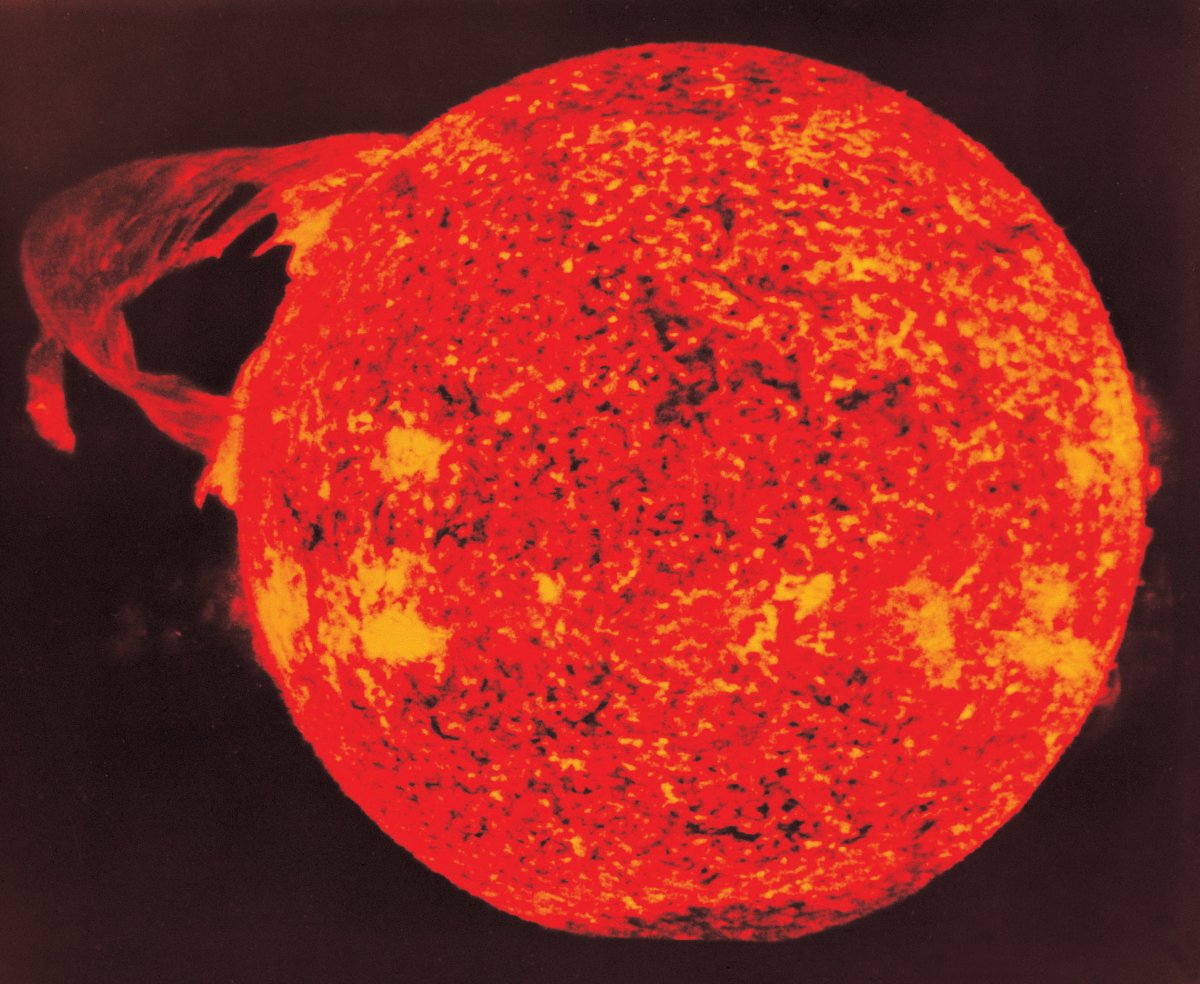Space weather such as solar flares or coronal mass ejections could lead to trains across the world being delayed.
According to research from Lancaster University in the U.K., the electromagnetic interference caused by space weather could end up changing the signals on train lines.
"There have been very well-documented examples of space weather interfering with railway signaling in the last couple of decades in both Sweden and Russia, as well as strong anecdotal evidence from other countries (including the U.K.) in the last century and a half," Cameron Patterson, a Ph.D. student at Lancaster University who researches this phenomenon, told Newsweek.

Space weather includes solar flares, coronal mass ejections (CMEs), and solar winds, caused by large eruptions of electromagnetic radiation from the surface of our sun. Solar flares emit light and other electromagnetic radiation, whereas CMEs involve the ejection of plasma from the Sun's outer corona layer. These events occur in active areas of the sun where the magnetic fields are particularly strong, and are normally completely harmless, unless they are aimed directly at us. When they are, however, it can have damaging effects on our infrastructure.
Our sun's activity follows 11-year cycles, over which the frequency of solar events varies hugely. The last solar minimum was in December 2019, meaning that the sun is in the process of gearing up for Solar Cycle 25. Data from the National Oceanic and Atmospheric Administration (NOAA) shows that the sun is actually ahead of schedule to reach the solar maximum.
The researchers at Lancaster University have been investigating the impact of space weather on the lines from Preston to Lancaster and Glasgow to Edinburgh.
Patterson has developed a computer model of elements of the U.K. rail network, the results of which show that the U.K. grid is vulnerable to severe space weather effects. This data is in the process of being published.
"Space weather poses a risk to many infrastructure systems we rely upon today, including GPS and communications satellites in space and power grids, gas and oil pipeline and railways on the ground," Patterson told Newsweek. "The disruption to railways occurs when solar storm conditions from the sun interact with our magnetic field, this causes electric currents to build up in the ground which find their way into grounded conductors such as railway lines. These currents then mix with the currents used to control railway signals and can confuse the system into giving false readings."

According to Patterson, this could cause a green signal to turn red, i.e., to fail in a safe manner. On a busy network, that may cause problems and delays. However, the modeling also shows that it is possible under extreme conditions to drive a red signal to green, which could be extremely dangerous.
"Our future work is to understand more clearly how bad space weather would need to get to cause that to happen," said Patterson.
Uncommon Knowledge
Newsweek is committed to challenging conventional wisdom and finding connections in the search for common ground.
Newsweek is committed to challenging conventional wisdom and finding connections in the search for common ground.
About the writer
Jess Thomson is a Newsweek Science Reporter based in London UK. Her focus is reporting on science, technology and healthcare. ... Read more
To read how Newsweek uses AI as a newsroom tool, Click here.








